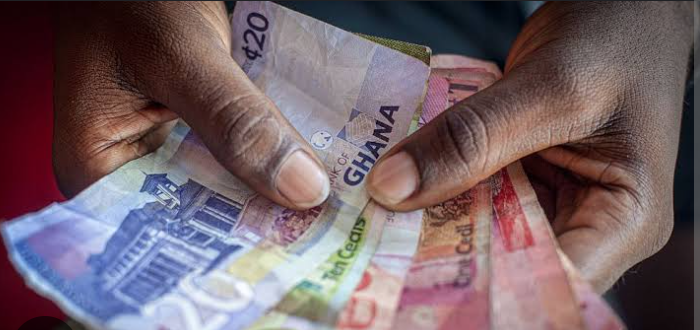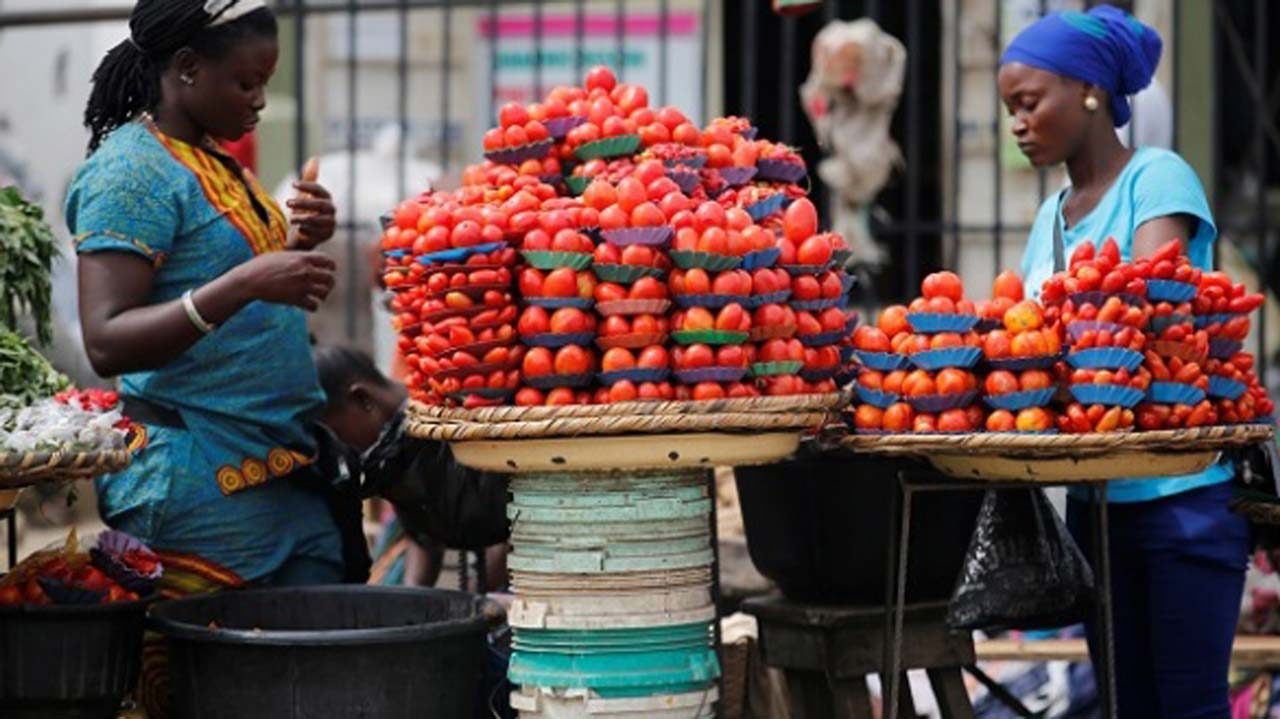Business
Ghana suspends payments on eurobonds and commercial term loans

The Ghanaian government says it has suspended all debt service payments under “certain categories of its external debt”.
The country’s ministry of finance announced this in a statement on Monday.
According to the statement, the West African nation will be suspending payments on eurobonds, commercial loans, amongst others.
The ministry said the measure was necessary to prevent a further deterioration in the economic, financial, and social situation in Ghana.
“This suspension will include the payments on: our eurobonds; our commercial term loans; and on most of our bilateral debt,” the statement reads.
“This suspension will not include the payments of our multilateral debt, new debts (whether multilateral or otherwise) contracted after 19th December 2022 or debts related to certain short term trade facilities.
“We are also evaluating certain specific debts related to projects with the highest socio-economic impact for Ghana which may have to be excluded. This suspension is an interim emergency measure pending future agreements with all relevant creditors.”
Business
Naira appreciates to N1,100/$ in parallel market

The naira rose further on Monday in the parallel section of the foreign exchange (FX) market.
At the Lagos street market, currency traders, also known as bureau de change (BDC) operators, quoted the naira at N1,100 to the greenback.
The traders put the buying price of the dollar at N1,070 and the selling price at N1,100 — leaving a profit margin of N30.
The figure represents an appreciation of N50 or 4.34 percent from the N1,150/$ it traded on April 12.
At the FMDQ Exchange, a platform that oversees official foreign exchange (FX) trading in Nigeria, the local currency rose by 5.72 percent or N69.02 to N1,136.04/$ on Monday — from N1,205.06/$ on April 12.
Business
‘To reduce costs’ — Tesla to lay off 10% of global workforce

Tesla will lay off 10 percent of its global workforce as demand for electric vehicles (EV) falls.
According to a Bloomberg report on Monday, Elon Musk communicated the retrenchment in a memo sent to workers at the automotive company.
Musk cited duplication of roles and the need to reduce costs as reasons for the cutback.
“As we prepare the company for our next phase of growth, it is extremely important to look at every aspect of the company for cost reductions and increasing productivity,” Musk wrote.
“As part of this effort, we have done a thorough review of the organization and made the difficult decision to reduce our headcount by more than 10 per cent globally. There is nothing I hate more, but it must be done.”
Responding to a comment on the planned layoff on X, Musk said “about every five years, we need to reorganize and streamline the company for the next phase of growth”.
If the cuts apply companywide, the dismissal would amount to more than 14,000 employees, the publication noted.
Tesla ended 2023 with 140,473 employees — nearly double its workforce three years ago.
The decision to lay off workers comes as Tesla faces declining sales and an intensifying price war for EVs.
According to the publication, Tesla announced that vehicle deliveries early this month missed expectations by a wide margin — posting its first quarterly decline in four years.
“Several analysts are bracing for the EV maker’s sales to potentially shrink for the year, citing slow output of its newest model — the Cybertruck — and a lull in new products until the company starts producing a next-generation vehicle late next year,” the publication said.
“The EV slowdown Tesla has felt of late has been widespread. China’s BYD Co. delivered just 300,114 battery-electric vehicles in the first quarter, down 43 per cent from the final three months of last year, when it briefly pulled ahead as the world’s top EV seller.”
Manufacturers including Volkswagen AG, General Motors Co., and Ford Motor Co. have delayed, dialled back or altogether scrapped EV projects as customers protest high prices and a scarcity of charging points.
Business
Nigeria’s inflation rate hits 33.2% as food prices soar

Nigeria’s inflation rate rose to 33.20 percent in Mach 2024 — up from 31.70 percent in February.
The National Bureau of Statistics (NBS) disclosed this in its consumer price index (CPI) report, which measures the rate of change in prices of goods and services, on Monday.
According to the bureau, food inflation also surged to 40.01 percent in the month under review.
NBS said the March headline inflation rate showed an increase of “1.50% points when compared to the February 2024 headline inflation rate”.
“On a year-on-year basis, the headline inflation rate was 11.16% points higher compared to the rate recorded in March 2023, which was 22.04%,” he said.
“This shows that the headline inflation rate (year-on-year basis) increased in the month of March 2024 when compared to the same month in the preceding year (i.e., March 2023).
“Furthermore, on a month-on-month basis, the headline inflation rate in March 2024 was 3.02%, which was 0.10% lower than the rate recorded in February 2024 (3.12%).
“This means that in the month of March 2024, the rate of increase in the average price level is less than
the rate of increase in the average price level in February 2024.”
FOOD PRICES IS MAJOR CONTRIBUTOR TO INFLATION RATE
The NBS report further showed that the food inflation rate in March 2024 was 40.01 percent on a year-on-year basis – an increase of 15.56 percent points higher compared to the 24.45 percent rate recorded in March 2023.
NBS said the rise in food inflation on a year-on-year basis was caused by an increase in prices of garri, millet, bread and cereal, yam, dried fish, meat, and fruits.
“On a month-on-month basis, the Food inflation rate in March 2024 was 3.62% which shows a 0.17% decrease compared to the rate recorded in February 2024 (3.79%),” the bureau said.
“The fall in food inflation on a month-on-month basis was caused by a fall in the rate of increase
in the average prices of Guinea corn flour, Plantain Flour, etc (under Bread and Cereals
class), Yam, Irish Potatoe, Coco Yam (under Potatoes, Yam & Other Tubers class), Titus
fish, Mudfish Dried (under Fish class), Lipton, Bournvita, Ovaltine (under Coffee, Tea, and Cocoa class).
“The average annual rate of Food inflation for the twelve months ending March 2024 over
the previous twelve-month average was 31.40%, which was 8.69% points increase from
the average annual rate of change recorded in March 2023 (22.72%).”
The report also said Kogi, Kwara, and Akwa Ibom states spent more on food in March.
-

 Entertainment7 days ago
Entertainment7 days agoBeyonce’s country album tops Billboard chart
-

 Education3 days ago
Education3 days agoPrinting of JAMB slip: Beware of fake sites, police warn 2024 UTME candidates
-

 News5 days ago
News5 days agoJnr Pope: NIWA rescues 7, recovers two corpses, 3 still missing in Anambra boat mishap
-

 Entertainment4 days ago
Entertainment4 days agoAdanma Luke surrenders to police after boat mishap
-

 Education1 week ago
Education1 week agoUNICAL sacks HOD over failure to present students for convocation
-

 Business1 week ago
Business1 week agoNaira appreciates against dollar at official window, parallel market
-

 Entertainment5 days ago
Entertainment5 days agoHow Ghanaian Prophet predicted Actor Jnr Pope’s death in 2023 (Video)
-

 Business5 days ago
Business5 days agoHow to apply for new NIMC multipurpose ID card


















